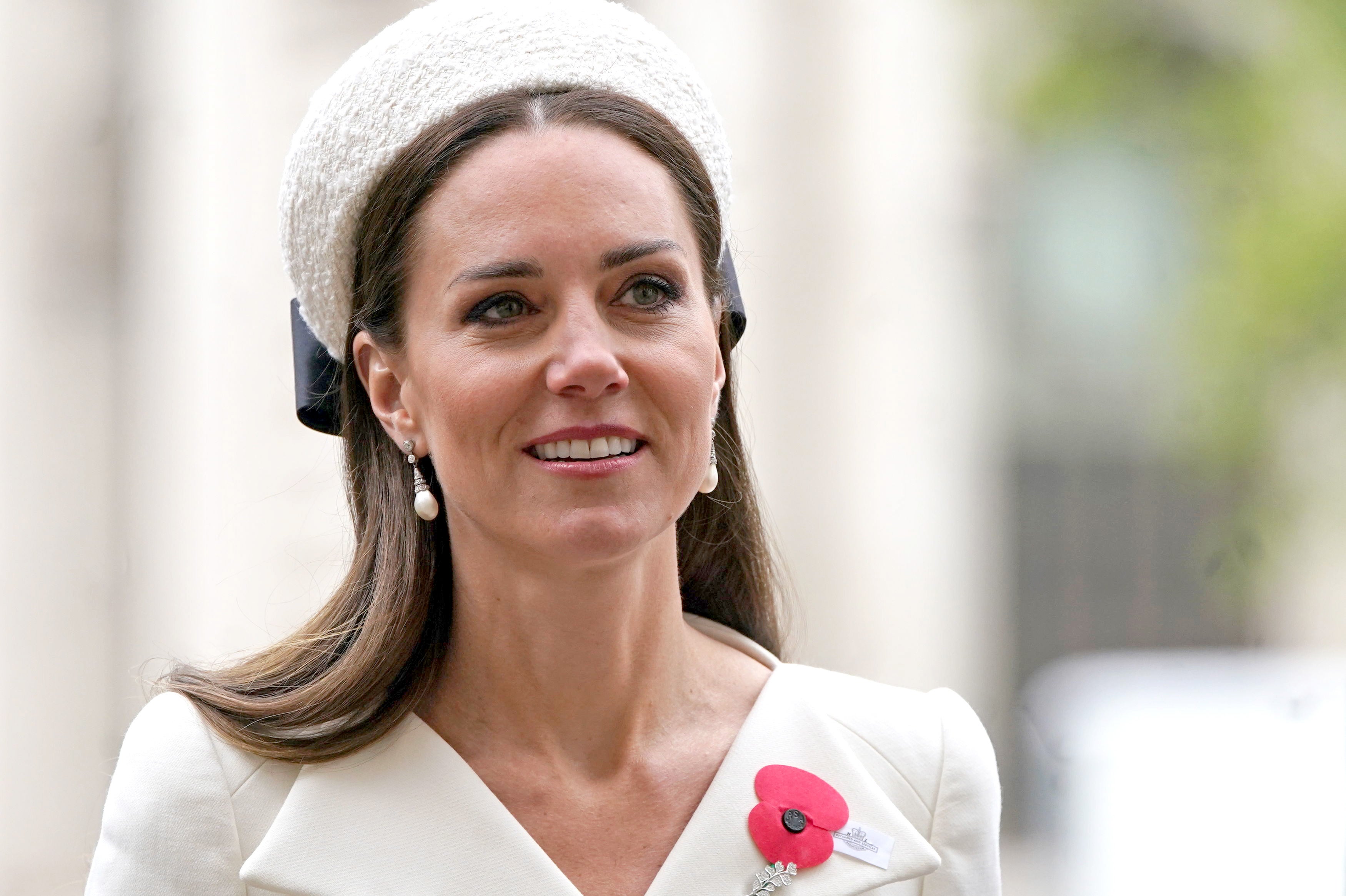Duchess of Cambridge joins Anzac Day commemoration at Westminster Abbey
William and Kate joined hundreds of guests from Australia and New Zealand’s communities in the UK.

Your support helps us to tell the story
From reproductive rights to climate change to Big Tech, The Independent is on the ground when the story is developing. Whether it's investigating the financials of Elon Musk's pro-Trump PAC or producing our latest documentary, 'The A Word', which shines a light on the American women fighting for reproductive rights, we know how important it is to parse out the facts from the messaging.
At such a critical moment in US history, we need reporters on the ground. Your donation allows us to keep sending journalists to speak to both sides of the story.
The Independent is trusted by Americans across the entire political spectrum. And unlike many other quality news outlets, we choose not to lock Americans out of our reporting and analysis with paywalls. We believe quality journalism should be available to everyone, paid for by those who can afford it.
Your support makes all the difference.The Duchess of Cambridge made a surprise appearance at a service of commemoration marking Anzac Day and joined the Duke in honouring Australia and New Zealand’s war dead.
William and Kate, who wore red poppies, were welcomed to Westminster Abbey by the Dean of Westminster and joined hundreds of guests from Australia and New Zealand’s communities in the UK.
Anzac Day – April 25 – marks the anniversary of the start of the First World War Gallipoli landings, and is a national day of remembrance for Australia and New Zealand.
Thousands of Anzac troops – Australian and New Zealand Army Corps – died alongside British allies in the ill-fated 1915 campaign.
Waves of Allied forces launched an amphibious attack on the strategically important Turkish peninsula, which was key to controlling the Dardanelles straits, the crucial route to the Black Sea and Russia.
But the plan backed by Winston Churchill, then first lord of the admiralty, was flawed and the campaign, which faced a heroic defence by the Turks, led to a stalemate and withdrawal eight months later.
Its legacy is the celebration of the “Anzac spirit” – courage, endurance, initiative, discipline and mateship – shown by the Antipodean troops.
In his address, the Dean, the Very Reverend David Hoyle, told those gathered, including Turkey’s ambassador to the UK, the war in Ukraine has altered our perspective of Gallipoli.
He said: “Even for us going back over the ground, picking our route back to 1915 and the Dardanelles, there are difficulties. Because, for us, we are now navigating another, nearer landscape of chaos. New names in a long litany of horror – Mariupol, Bucha and Kharkiv.
“We read our history afresh and we are freshly sensitive to what war does. The narratives look a bit less sure, don’t they? We feel a bit less confident when violence can be so sudden and political will so arbitrary, so senseless.”
The Dean went on to say: “In the foxholes of Anzac cove, the bunkers of shattered cities in Ukraine, in the depths of distancing and isolation in the pandemic, we learn again and again what it is to be thrown back on just our human recourses. The horror builds and you have your humanity or you have the indifferent gods.”
He said “humanity is God-given” and was “not mine, not yours but ours and God’s”.
During the service, the Last Post was sounded and George Brandis, the high commissioner for Australia, and his New Zealand counterpart, Bede Corry, laid wreaths at the Grave of the Unknown Warrior.
Earlier, William had laid a wreath on behalf of the Queen at the Cenotaph and hundreds took part in a parade, including members of veterans’ associations, service and ex-service personnel and their families.
The handwritten message on the floral tribute read: “In memory of those who made the ultimate sacrifice for our freedom. William.”
The Dean went on to say: “We have been tested in pandemic, we are tested now by what is happening in Ukraine. We’re asked to consider what we think of our own humanity – our purpose. We’re tested, not just in courage but we’re tested in hope.
“Do we believe that we are better than the worst that we can do? Do we have the resource to imagine and name something better when we look around and see the waste places of our wrath?”
The day of commemorations began with the Duke of Gloucester attending the dawn service at the New Zealand Memorial at London’s Hyde Park Corner, which featured readings, the Last Post played by a bugler and the laying of wreaths.
A Kensington Palace spokeswoman said the duchess was able to attend the service “as a result of changes to the diary”.